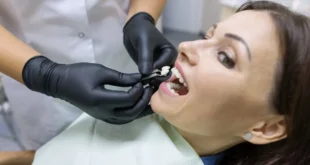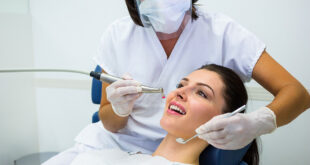Gums are an essential part of our oral health, providing support and protection to our teeth. However, when gums recede, it can lead to various dental problems. Let’s explore what gum recession is, its causes, symptoms, diagnosis, treatment options, complications, and prevention measures.
What Are Gums?
Gums, also known as gingiva, are the pink tissues that surround and support our teeth. They cover the jawbone and provide a protective barrier against bacteria and food debris.
Why Do Gums Recede?
Gum recession occurs when the gum tissue pulls back or wears away from the tooth, exposing the tooth roots. Several factors can contribute to gum recession, including:
- Periodontal disease (gum disease)
- Poor oral hygiene habits
- Aggressive tooth brushing
- Hormonal changes
- Genetics
- Tobacco use
- Teeth grinding or clenching
- Crooked teeth or misaligned bite
Symptoms of Gum Recession:
Symptoms of gum recession may include:
- Visible tooth roots
- Longer-looking teeth
- Sensitivity to hot or cold temperatures
- Tooth pain or discomfort
- Bleeding gums
- Bad breath
- Changes in tooth alignment
Diagnosis:
A dentist or periodontist can diagnose gum recession through a comprehensive dental examination. This may involve measuring the depth of gum pockets, assessing tooth mobility, and evaluating X-rays to determine the extent of bone loss.
Types of Surgery Used:
Treatment for gum recession may involve surgical procedures such as:
- Gum grafting: Involves taking tissue from the roof of the mouth or another donor source to cover exposed tooth roots.
- Pinhole surgical technique: A minimally invasive procedure that repositions existing gum tissue to cover exposed roots.
- Regenerative procedures: Aimed at regrowing lost bone and tissue to restore gum health.
Complications:
Untreated gum recession can lead to several complications, including:
- Tooth decay: Exposed tooth roots are more susceptible to decay and cavities.
- Tooth loss: Severe gum recession can result in tooth loss due to lack of support.
- Gum disease: Receding gums increase the risk of developing periodontal disease, leading to further tissue and bone loss.
Prevention:
To prevent gum recession, follow these tips:
- Practice good oral hygiene: Brush your teeth twice a day, floss daily, and visit your dentist regularly for check-ups and cleanings.
- Use a soft-bristled toothbrush: Avoid brushing too hard, as it can damage gum tissue and contribute to recession.
- Quit smoking: Smoking increases the risk of gum disease and can exacerbate gum recession.
- Address teeth grinding: Wear a nightguard if you grind your teeth while sleeping to prevent further gum damage.
In conclusion, gums recession is a common dental condition that requires prompt attention to prevent further complications. By understanding the causes, symptoms, diagnosis, treatment options, complications, and prevention measures associated with gum recession, you can take proactive steps to maintain healthy gums and teeth for life.
 Love Airdrie Love Airdrie
Love Airdrie Love Airdrie








